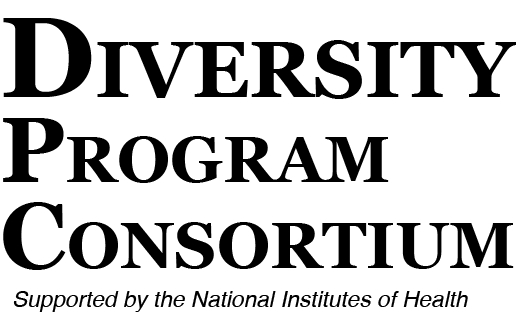



CEC publications on this page include:
There is a pressing need for deeper cultural awareness among postsecondary faculty, yet few studies focus on institutions with developing research infrastructure, which enroll large proportions of racially minoritized students. Using social exchange theory, we inves- tigate faculty members’ perceptions of “culturally diverse mentor training,” which includes culturally aware mentor (CAM) training, Entering Mentoring, and self-designed mentor training initiatives.
Underrepresented racial and eth- nic minorities (URMs) are less likely to graduate from high school, attend college and major in biomedical sci- ences, and obtain doctoral degrees than non-Hispanic Whites. Persis- tent educational disparities occur across the lifecourse and extend be- yond academic preparation pathways and into career trajectories. African Americans/Blacks, Latinos/Latinas, American Indians or Alaska Natives, Native Hawaiians, and other Pacific Islanders are URMs in the biomedical sciences, while non-Hispanic Whites and Asians are well-represented groups (WRGs) in the biomedical sciences.
Grant funding often drives innovative programming in efforts to enhance diversity in biomedical fields, yet strategies for sustainability of grant-funded biomedical intervention are not well understood. Additionally, as funding agencies shift toward supporting institutional change to biomedical training, less is known about the extent to which sustainability strategies can support long-term institutionalization of the original goals of the grant- funded initiative. The purpose of this study is twofold: to identify strategies used by grant-funded programs for promoting sustainability, and to examine the interrelations between the concepts of sustainability and institutionalization during early stages of grant-funded biomedical career training efforts.
Stemming from Albert Bandura’s work on self-efficacy (1977) and later work on social cognitive theory (Bandura, 1991), self-efficacy was developed to explain how people think, motivate themselves, and ultimately how they behave - including how long they will persist in the face of obstacles or challenging situations (Bandura & Adams, 1977).
The articles in this special issue provide insights from a variety of mentoring interventions that were implemented across the NIH Diversity Program Consortium (DPC). Many of the articles highlight examples of how the Entering Mentoring and Entering Research curricular materials, available through the National Research Mentoring Network (NRMN), were adapted and implemented for research mentors and research trainees at Building Infrastructure Leading to Diversity (BUILD) institutions.
This publication provides an overview of the development of the Self-Efficacy as Faculty Change Agent for Diversity (SE-FCA-D) scale. The 5-item scale recently appeared as an additional module on the Higher Education and Research Institute (HERI) Faculty Survey 2019-2020 for the 10 BUILD programs within the Diversity Program Consortium that are participating in the Enhance Diversity Study, supported by the National Institutes of Health (NIH U54GM119024).
The National Institutes of Health (NIH) funds training programs to increase the numbers and skills of scientists who obtain NIH research grants, but few programs have been rigorously evaluated. The sizeable recent NIH investment in developing programs to increase the diversity of the NIH-funded workforce, implemented through the Diversity Program Consortium (DPC), is unusual in that it also funds a Consortium-wide evaluation plan, which spans the activities of the 10 BUilding Infrastructure Leading to Diversity (BUILD) awardees and the National Research Mentoring Network (NRMN). The purpose of this article is to describe the evaluation design and innovations of the BUILD Program on students, faculty, and institutions of the 10 primarily undergraduate BUILD sites.
National reports call for improving America?s leadership in scientific research, accelerating degree attainments, and diversifying the scientific workforce to foster innovation. However, slow progress and persistent disparities across growing U.S. populations are evident on key science workforce indicators, from degree attainment to career achievements. The purpose of this article is to provide a conceptual basis and overview of a national effort funded by the National Institutes of Health (NIH) that advances inclusive science practice and systemic change. We introduce the context, features, and rationale that drive practice and evaluation in the Diversity Program Consortium (DPC) approach, which is an experimental program to implement and evaluate evidence-based and novel practices to expand and diversify the biomedical workforce.
The biomedical/behavioral sciences lag in the recruitment and advancement of students from historically underrepresented backgrounds. In 2014 the NIH created the Diversity Program Consortium (DPC), a prospective, multi-site study comprising 10 Building Infrastructure Leading to Diversity (BUILD) institutional grantees, the National Research Mentoring Network (NRMN) and a Coordination and Evaluation Center (CEC). This article describes baseline characteristics of four incoming, first-year student cohorts at the primary BUILD institutions who completed the Higher Education Research Institute, The Freshmen Survey between 2015-2019. These freshmen are the primary student cohorts for longitudinal analyses comparing outcomes of BUILD program participants and non-participants.
The National Institutes of Health (NIH)-funded Diversity Program Consortium (DPC) includes a Coordination and Evaluation Center (CEC) to conduct a longitudinal evaluation of the two signature, national NIH initiatives - the Building Infrastructure Leading to Diversity (BUILD) and the National Research Mentoring Network (NRMN) programs - designed to promote diversity in the NIH-funded biomedical, behavioral, clinical, and social sciences research workforce. Evaluation is central to understanding the impact of the consortium activities. This article reviews the role and function of the CEC and the collaborative processes and achievements critical to establishing empirical evidence regarding the efficacy of federally-funded, quasi-experimental interventions across multiple sites. The integrated DPC evaluation is particularly significant because it is a collaboratively developed Consortium Wide Evaluation Plan and the first hypothesis-driven, large-scale systemic national longitudinal evaluation of training programs in the history of NIH/National Institute of General Medical Sciences.
The NIH-funded National Research Mentoring Network (NRMN) aims to increase the representation and success of underrepresented groups (URGs) in biomedical research by enhancing the training and career development of individuals from diverse backgrounds, communities, and cultures. The national scope of NRMN, its wide array of innovative programs in mentor and mentee matching and training across the career spectrum, requires a collaborative evaluation strategy that addresses both internal and external evaluation needs. Due to the variety of programs implemented for each target group, the NRMN program is responsible for its own process and short-term outcome evaluations and the national Coordination and Evaluation Center (CEC) is responsible for assessing the medium and long-term effectiveness of the implemented strategies and program sustainability. Using a collaborative, utilization-focused evaluation framework, both internal NRMN evaluators and the CEC are working to translate findings into information that can be used to make both short term and long-term decisions about the efficacy and reach of the NRMN model. This important information can then inform efforts to institutionalize the current programs and potentially replicate them elsewhere.